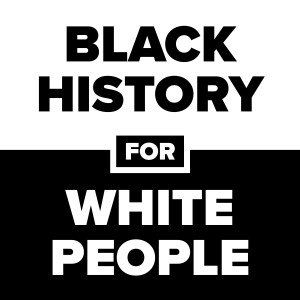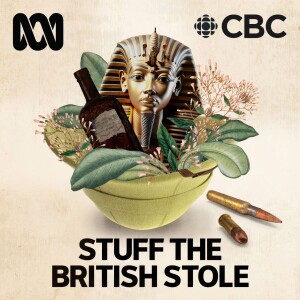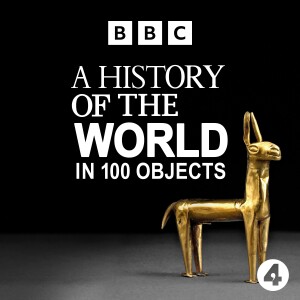

Witness History: Black history
https://podcasts.files.bbci.co.uk/p01h9dl0.rssEpisode List

Civil rights swim-in
On 18 June 1964, black and white protesters jumped into a ‘whites only’ swimming pool at a motel in St Augustine, in Florida.Photos of the Monson Motor Lodge manager, James Brock, pouring cleaning acid into the pool to get them out, made global headlines.The following day, the Civil Rights Act - a landmark bill to end discrimination which had been stalling in the Senate – was finally passed.Using archive interviews with two of the swimming activists, JT Johnson and Mimi Jones, Vicky Farncombe looks back at this crucial moment in the civil rights movement.This programme includes outdated and offensive language.Eye-witness accounts brought to life by archive. Witness History is for those fascinated by the past. We take you to the events that have shaped our world through the eyes of the people who were there. For nine minutes every day, we take you back in time and all over the world, to examine wars, coups, scientific discoveries, cultural moments and much more. Recent episodes explore everything from football in Brazil, the history of the ‘Indian Titanic’ and the invention of air fryers, to Public Enemy’s Fight The Power, subway art and the political crisis in Georgia. We look at the lives of some of the most famous leaders, artists, scientists and personalities in history, including: visionary architect Antoni Gaudi and the design of the Sagrada Familia; Michael Jordan and his bespoke Nike trainers; Princess Diana at the Taj Mahal; and Görel Hanser, manager of legendary Swedish pop band Abba on the influence they’ve had on the music industry. You can learn all about fascinating and surprising stories, such as the time an Iraqi journalist hurled his shoes at the President of the United States in protest of America’s occupation of Iraq; the creation of the Hollywood commercial that changed advertising forever; and the ascent of the first Aboriginal MP.(Photo: Monson Motor Lodge manager, James Brock, pouring cleaning acid into the pool. Credit: Getty Images)

Charleston church shooting
On 17 June 2015, white supremacist Dylann Roof attended a bible group at Emanuel African Methodist Episcopal Church in Charleston, South Carolina, in the United States. As it was ending, the 21-year-old started shooting and killed nine people.Polly Sheppard was one of the survivors. She called 911 whilst hiding from Roof. The shootings at the historic African-American church shocked a nation already too used to gun violence. President Barack Obama delivered the eulogy at one of the victim’s funerals and spontaneously started singing Amazing Grace. Ten years on since that day, Polly now 80, tells her harrowing story to Uma Doraiswamy.Eye-witness accounts brought to life by archive. Witness History is for those fascinated by the past. We take you to the events that have shaped our world through the eyes of the people who were there. For nine minutes every day, we take you back in time and all over the world, to examine wars, coups, scientific discoveries, cultural moments and much more.Recent episodes explore everything from football in Brazil, the history of the ‘Indian Titanic’ and the invention of air fryers, to Public Enemy’s Fight The Power, subway art and the political crisis in Georgia. We look at the lives of some of the most famous leaders, artists, scientists and personalities in history, including: visionary architect Antoni Gaudi and the design of the Sagrada Familia; Michael Jordan and his bespoke Nike trainers; Princess Diana at the Taj Mahal; and Görel Hanser, manager of legendary Swedish pop band Abba on the influence they’ve had on the music industry. You can learn all about fascinating and surprising stories, such as the time an Iraqi journalist hurled his shoes at the President of the United States in protest of America’s occupation of Iraq; the creation of the Hollywood commercial that changed advertising forever; and the ascent of the first Aboriginal MP.(Photo: A memorial outside the Emanuel AME Church. Credit: Brendan Smialowski/AFP via Getty Images)

King Kong: South Africa's first all-black musical
In 1959, Todd Matshikiza composed the score for King Kong, it was South Africa’s first musical with an all-black cast and it opened to critical acclaim. About the rise and fall of the heavyweight boxer Ezekiel Dlamini, it defied apartheid with the collaboration between black and white artists. Starring Miriam Makebe, it launched the singer's international career and went on to tour, arriving in London’s West End in February 1961. Todd’s daughter Marian was eight when the family moved to London for the run. She speaks to Reena Stanton-Sharma about her father’s music and what King Kong meant to him. Eye-witness accounts brought to life by archive. Witness History is for those fascinated by the past. We take you to the events that have shaped our world through the eyes of the people who were there. For nine minutes every day, we take you back in time and all over the world, to examine wars, coups, scientific discoveries, cultural moments and much more. Recent episodes explore everything from football in Brazil, the history of the ‘Indian Titanic’ and the invention of air fryers, to Public Enemy’s Fight The Power, subway art and the political crisis in Georgia. We look at the lives of some of the most famous leaders, artists, scientists and personalities in history, including: visionary architect Antoni Gaudi and the design of the Sagrada Familia; Michael Jordan and his bespoke Nike trainers; Princess Diana at the Taj Mahal; and Görel Hanser, manager of legendary Swedish pop band Abba on the influence they’ve had on the music industry. You can learn all about fascinating and surprising stories, such as the time an Iraqi journalist hurled his shoes at the President of the United States in protest of America’s occupation of Iraq; the creation of the Hollywood commercial that changed advertising forever; and the ascent of the first Aboriginal MP.(Photo: Todd Matshikiza. Credit: Jurgen Schadeberg via The Schadeberg Collection)

How bloodshed in Selma led to the US Voting Rights Act 1965
In March 1965, hundreds of peaceful civil rights protesters in Selma were brutally beaten by Alabama state troops.They had been marching to demonstrate against the denial of voting rights to Black Americans.The bloodshed in Selma prompted President Lyndon B Johnson to push for the Voting Rights Act of 1965, one of the most significant pieces of legislation ever passed by Congress. The landmark Act was brought in to tackle racial discrimination during elections and to guarantee the rights of African Americans to vote. Farhana Haider has been listening to the archive. A version of this programme was first broadcast in 2020.Eye-witness accounts brought to life by archive. Witness History is for those fascinated by the past. We take you to the events that have shaped our world through the eyes of the people who were there. For nine minutes every day, we take you back in time and all over the world, to examine wars, coups, scientific discoveries, cultural moments and much more. Recent episodes explore everything from football in Brazil, the history of the ‘Indian Titanic’ and the invention of air fryers, to Public Enemy’s Fight The Power, subway art and the political crisis in Georgia. We look at the lives of some of the most famous leaders, artists, scientists and personalities in history, including: visionary architect Antoni Gaudi and the design of the Sagrada Familia; Michael Jordan and his bespoke Nike trainers; Princess Diana at the Taj Mahal; and Görel Hanser, manager of legendary Swedish pop band Abba on the influence they’ve had on the music industry. You can learn all about fascinating and surprising stories, such as the time an Iraqi journalist hurled his shoes at the President of the United States in protest of America’s occupation of Iraq; the creation of the Hollywood commercial that changed advertising forever; and the ascent of the first Aboriginal MP.(Photo: Civil rights leader Dr Martin Luther King at the Selma to Montgomery march. Credit: Getty Images)

Emperor Haile Selassie in Bath
In 1936, Haile Selassie came to Bath in the west of England to escape Mussolini and the fascists who had invaded Ethiopia.He bought a property – Fairfield House - and moved his entire family and staff there. He quickly became the talk of the town.The local paper ran daily updates on the Emperor’s schedule and dispelled rumours such as the Emperor’s beard "having turned white with anguish" or that he was keeping lions in the basement.Haile Selassie also made a point of indulging in local amusements and even took a trip to the Tropicana outdoor swimming pool in the seaside town of Weston-super-Mare.Selassie returned to Ethiopia in 1940 after the British helped remove Mussolini. He never forgot his time in Bath and renamed one of his palaces Fairfield in tribute to the British city.Eye-witness accounts brought to life by archive. Witness History is for those fascinated by the past. We take you to the events that have shaped our world through the eyes of the people who were there. For nine minutes every day, we take you back in time and all over the world, to examine wars, coups, scientific discoveries, cultural moments and much more. Recent episodes explore everything from football in Brazil, the history of the ‘Indian Titanic’ and the invention of air fryers, to Public Enemy’s Fight The Power, subway art and the political crisis in Georgia. We look at the lives of some of the most famous leaders, artists, scientists and personalities in history, including: visionary architect Antoni Gaudi and the design of the Sagrada Familia; Michael Jordan and his bespoke Nike trainers; Princess Diana at the Taj Mahal; and Görel Hanser, manager of legendary Swedish pop band Abba on the influence they’ve had on the music industry. You can learn all about fascinating and surprising stories, such as the time an Iraqi journalist hurled his shoes at the President of the United States in protest of America’s occupation of Iraq; the creation of the Hollywood commercial that changed advertising forever; and the ascent of the first Aboriginal MP.
Create Your Podcast In Minutes
- Full-featured podcast site
- Unlimited storage and bandwidth
- Comprehensive podcast stats
- Distribute to Apple Podcasts, Spotify, and more
- Make money with your podcast












